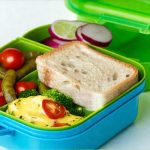Irritable Bowel Syndrome (IBS) and frequent bloating can significantly impact daily life. Many people find that certain foods and drinks trigger their symptoms, making it essential to understand which beverages might exacerbate these issues. Identifying and avoiding problematic drinks is often the first step towards better digestive health and reduced discomfort. This isn’t about restrictive dieting; it’s about mindful choices tailored to your individual sensitivities. Understanding why specific drinks can cause problems will empower you to manage your symptoms more effectively.
The gut is a complex system, and what bothers one person might not affect another. However, there are common culprits that frequently contribute to IBS flare-ups or bloating. This article will explore these beverages in detail, offering practical guidance on alternatives and how to navigate social situations where triggering drinks may be present. We’ll focus on providing actionable information you can use immediately to improve your digestive well-being.
Common Trigger Drinks for IBS & Bloating
Many seemingly harmless drinks can wreak havoc on a sensitive digestive system. Carbonated beverages are notorious for introducing excess gas, leading to bloating and discomfort. However, the issue goes beyond just fizz; certain ingredients found in many popular drinks can also trigger IBS symptoms. High-fructose corn syrup, artificial sweeteners, caffeine, and even dairy (for those lactose intolerant) are all potential problem areas. It’s important to remember that individual tolerances vary greatly, so paying attention to your body’s signals is crucial.
The impact of these drinks isn’t always immediate. Sometimes symptoms develop hours later, making it harder to identify the trigger. Keeping a food and drink diary can be incredibly helpful in pinpointing which beverages are causing issues. This allows you to make informed choices and proactively manage your IBS or bloating. Don’t underestimate the power of simple observation – noting what you’ve consumed and how you feel afterward is one of the most effective tools for understanding your digestive health.
Finally, consider the temperature of your drinks. Extremely cold beverages can sometimes cause stomach cramping in individuals with sensitive guts. Allowing drinks to come closer to room temperature may reduce this effect.
The Role of Specific Ingredients
Certain ingredients are more likely to contribute to IBS and bloating than others. Fructose malabsorption is a common issue, where the small intestine struggles to absorb fructose efficiently. This leads to fermentation in the large intestine, producing gas and causing discomfort. High-fructose corn syrup (HFCS) found in many sodas, juices, and even some seemingly healthy drinks, can be a major trigger for those with this sensitivity. Similarly, sugar alcohols like sorbitol and mannitol – often used in “sugar-free” products – are poorly absorbed and can have similar effects.
Caffeine is another significant contributor to digestive upset. It stimulates the gut, potentially leading to increased motility (and thus diarrhea) or cramping. For some individuals, even small amounts of caffeine can trigger symptoms. Dairy, for those with lactose intolerance, presents its own challenges. The inability to properly digest lactose results in fermentation and gas production. Identifying these individual sensitivities is key to managing your symptoms effectively.
Drinks to Definitely Limit or Avoid
Here’s a breakdown of specific drinks you should be cautious about:
* Carbonated Beverages: Sodas, sparkling water (even unflavored), tonic water – the fizz introduces excess gas.
* Fruit Juices (Concentrated): Often high in fructose and lacking fiber which can exacerbate issues. Diluted juice may be more tolerable for some.
* Alcohol: Many alcoholic beverages contain sugar, carbonation, or ingredients that irritate the gut. Beer is particularly problematic due to its fermentable carbohydrates. Wine, while sometimes tolerated better, can still cause symptoms in sensitive individuals.
* Coffee & Energy Drinks: The caffeine content and potential additives are often triggers for IBS sufferers.
* Sweetened Beverages (HFCS): This includes many sports drinks, sweetened teas, and flavored waters.
If you suspect a particular drink is causing problems, try eliminating it from your diet for a few weeks to see if your symptoms improve. Slowly reintroduce it in small amounts to assess your tolerance. Remember that even seemingly “healthy” options like kombucha can sometimes trigger bloating due to their fermentation process.
Alternatives and Better Choices
Fortunately, there are plenty of hydrating and enjoyable alternatives available. Water remains the gold standard – aim for at least eight glasses a day. Herbal teas (peppermint, ginger, chamomile) can be soothing for some, but test tolerance as peppermint might aggravate reflux in certain individuals. Infused water with cucumber or berries adds flavor without added sugar or artificial sweeteners.
For those who enjoy a bit of fizz, consider naturally fermented beverages like kefir water (ensure it’s low in sugar) or kombucha if you tolerate it well. Plant-based milk alternatives (almond, oat, rice) can be good substitutes for dairy, but be mindful of added sugars and gums, which may cause issues for some. Ultimately, listening to your body is paramount – what works for one person won’t necessarily work for another.
Final Insights & Managing Social Situations
Managing IBS or bloating often requires more than just avoiding trigger drinks. Stress management plays a huge role in digestive health, as stress can significantly worsen symptoms. Regular exercise, adequate sleep, and mindfulness practices can all contribute to improved gut function. Additionally, paying attention to the timing of your meals and ensuring you’re eating smaller, more frequent portions can help reduce bloating.
Social situations involving drinks can be tricky. Don’t feel pressured to consume something that will upset your stomach. Politely decline or opt for a safe alternative like water with lemon. Explaining your dietary needs to friends and family can also make navigating these situations easier. Remember, prioritizing your health is never selfish – it’s essential for your overall well-being.
Ultimately, finding the right balance of hydration and digestive comfort requires experimentation and self-awareness. By understanding which drinks to avoid and embracing healthier alternatives, you can take control of your IBS or bloating and enjoy a more comfortable and fulfilling life.


















